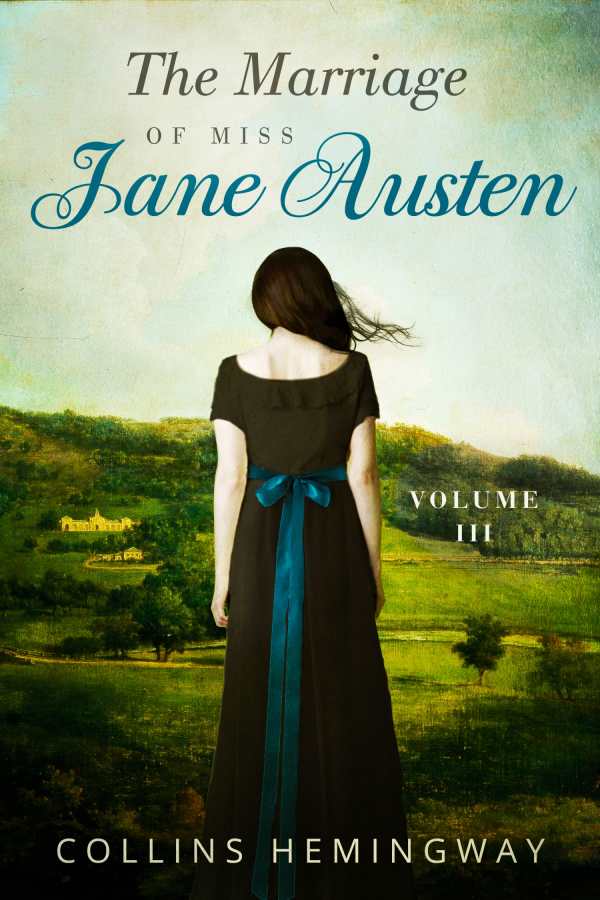The Marriage of Miss Jane Austen
Volume III
It is immensely satisfying to read about Jane Austen’s happiness, adventures, and intimacies in Collins Hemingway’s excellent series.
It is 1807, and Jane Austen is learning to breastfeed. The Marriage of Jane Austen: Volume III imagines Jane’s married life and early motherhood in a continuation of the popular series by Collins Hemingway.
Like the preceding volume, Marriage is lively, compelling, and fun. Hemingway includes sufficient historical detail to make the novel feel grounded in the Regency period: clothes, food, and current events are all duly noted.
This time, however, Jane is grappling with her new responsibilities as a mother. Her son George absorbs her attention and energy, draining her. While she used to feel “a sunburst of energy in her core to overcome weariness,” Jane is bored, overwhelmed, and frustrated. Her problems feel unbelievably modern: she addresses fatigue, physical recovery from birth, and dividing child care duties in language that could have come from a modern mommy blog.
While not necessarily historically reliable, this aspect of Jane’s character is highly relatable and adds more dimension. How will she get herself back? And, after becoming a mother, how has her understanding of herself changed?
Best of all, Jane’s relationship with her husband Ashton still sparkles. Marriage is a lovely ode to their connection. Their conversation is humane and interesting, with Hemingway weaving in details about contemporary science and trade. They are an unusually modern couple, with an open-mindedness and mutual respect that may not be historically accurate but makes for wonderful reading. Ashton, for example, teases Jane gently about their marital relations postpartum: “You have not lost your desire for me, Jane. You have lost your sense of humor.”
Hemingway’s writing is, thankfully, not an imitation of Austen’s own style; however, he includes her work’s more consistent themes. Sisterhood, English gardens, and witty banter all add an Austenian flavor to Marriage. Although the novel is an imagined biography, it is incredibly satisfying to read. Hemingway has combined Austen’s humanity with her fiction and created a Jane that lives and breathes on the page. Audiences will want her to be real.
Unlike earlier volumes, this installment of Marriage jumps in media res immediately, which may disorient readers who are new to the series. Hemingway opens with very little backstory to contextualize the plot. Volume III is not a standalone book. However, it does build on the excellent novels that precede it—and sets up the possibility of more to come.
Although Marriage is not a purely historical account of the life of Jane Austen, it offers a wonderful, imagined alternate life for the well-loved author. It is immensely satisfying to read about her happiness, adventures, and intimacies in Collins Hemingway’s excellent series.
Reviewed by
Claire Foster
Disclosure: This article is not an endorsement, but a review. The publisher of this book provided free copies of the book and paid a small fee to have their book reviewed by a professional reviewer. Foreword Reviews and Clarion Reviews make no guarantee that the publisher will receive a positive review. Foreword Magazine, Inc. is disclosing this in accordance with the Federal Trade Commission’s 16 CFR, Part 255.

